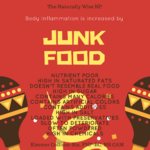Immune system nutrition
It has long been stated, "You are what you eat", and there is actually a lot of truth in that statement. Years ago our ancestors were used to growing and raising their own foods and took the time to prepare them to eat. They were used to eating for the seasons because there was a limited amount of prepackaged foods and grocery stores were scarce. People tended to be physically fit, obesity wasn't as common, heart disease and diabetes were also rare. Today, most of our foods come already prepared (processed) and full of preservatives and additives. Many people don't take the time to cook fresh foods or know how. It is not uncommon to go out to eat a meal several times per week at fast-food restaurants. We hear on the news there is an epidemic of obesity, heart disease, diabetes, and depression. Most school lunches contain sodas, chips, energy drinks, cookies and processed foods instead of fresh fruits, vegetables, water, and homemade meals. According to recent research, there appears to be a direct link between a healthy immune system and good nutrition.
The Immune System
The immune system is made up of a complex network of tissues, cells, and organs that are interdependent on each other to protect the body. [1] The immune system is made of specifically designed cells, tissues, various proteins and organs.[2]
White blood cells, known as leukocytes, are part of the body’s immune system that are made up of two different kinds of cells that join together to find and destroy damaging substances or organisms. The body’s defense against miscellaneous microorganisms that cause illness is known as the immune system. [3] Leukocytes are made up of two main types: phagocytes and lymphocytes. [4]
Phagocytes are the cells that engulf and destroy invading microorganisms. There are several different types of phagocytes, neutrophils are more numerous and fight mainly against bacteria. There are other phagocytes that work to destroy specific invaders.[5]
Lymphocytes are cells that help the body to recall and recognize previous invading organisms, and then destroy them when they attack the body again. There are two different kinds of Lymphocytes, type B and T. These are produced in the bone marrow where they either stay and mature to form B lymphocytes or relocate to the thymus gland and develop to form T lymphocytes. Both types of lymphocytes have specific functions; B cells identify their target and form a blockade to contain them, so that the T cells can demolish the contained invaders identified by the B cells.[6]
Nutrition and Health
Nutrition
One of the formal definitions of nutrition is "the process of taking in food and using it for growth, metabolism, and repair. Nutritional stages are ingestion, digestion, absorption, transport, assimilation, and excretion." [7]. Webster's dictionary defines nutrition as "the act or process of nourishing or being nourished; specifically the sum of the processes by which an animal or plant takes in and utilizes food substances. It is also defined as foods that are necessary for human nutrition. [8].
How nutrition impacts health
Good health has a lot to do with a person's diet. People that appear underfed but eat a healthy diet rich in nutrient dense whole foods (whole grains, protein sources, fresh fruits and vegetables, and filtered water) and low in processed foods, saturated fats, artificial sweeteners, and refined sugars are generally quite healthy. Nutrient dense foods are ones that are fresh and loaded with vitamins, minerals, and essential proteins. Recently nutritionists and scientists have discovered that less body fat is healthier as an excess of fat leads to inflammation in the body; which in turn, leads to a lower immune system. Individuals who are obese tend to have increased illness, inflammatory joint diseases, type 2 Diabetes, high blood pressure, and fatigue. "People can be overweight or obese and still be undernourished" reports, Integrative medicine provider, Kimmer Collison-Ris ARNP. "Health and Medical providers are just now discovering the importance of how diet is directly linked to good health. Processed foods high in sugars, saturated fats, and laden with chemicals do not help feed the body's cells and weaken the immune system. There is a movement of Holistic providers who are knowledgeable about health, nutrition, and medicine. Their health focus with their patients emphasizes the old adage, "Food really is medicine". [9].
Nutrition is crucial in determining immune responses; poor nutrition and malnutrition are among the most common causes of immunodeficiency worldwide. Good nutrition is important to a healthy and strong immune system, which appears to offer protection from seasonal illness like the flu and other health problems including allergies, abnormal cell development, arthritis, and cancers.[10]
Protein-energy malnutrition is linked with a serious malfunction of cell-mediated immunity, complement system, secretory immunoglobulin A antibody concentrations, phagocyte function, and cytokine production. Altered immune responses are observed and the result of deficiency even in mild cases of single nutrients. Important micronutrients which have influences on immune responses are selenium, zinc, iron, copper, and vitamins A, C, E, and B-6, along with folic acid. Obesity and over-nutrition also reduce immunity. Low-birth-weight infants have a prolonged impairment of cell-mediated immunity that can be partly restored by providing extra dietary zinc. In the elderly, impaired immunity can be improved by small combinations of micronutrients. These findings have important practical and public health meaning.[11] And protein is another key nutrient, used as fuel for the body's defense mechanisms. [12].
Integrative medicine providers knowledgeable about nutrition report that processed foods have recently been associated with an increased risk for chronic diseases (high cholesterol, Type 2 diabetes, and cardiovascular disease) because they create inflammation in the body. Inflammation is one of the main underlying reasons for the development of chronic illnesses and obesity. Processed foods are considered nutrient poor and are unhealthy, contributing to weight gain, which places a person at risk for inflammation. Research scientists who took obesity factors into account, found that even eating healthy foods wasn't enough if weight loss didn't occur as inflammation remained. [13].
Junk food's influence on health
"Junk food" generally refers to foods that contribute lots of calories but little nutritional value; typically produced in the form of packaged snacks needing little or no preparation. A big problem with junk foods is that it is low in satiation value – meaning, people often don’t feel as full when they eat them -- which then leads to overeating. A second problem is that junk food usually replaces healthier foods. When people drink lots of pop, for example, they are usually not drinking plenty of water or other healthier drinks like green tea or homemade juice. When they're eating cookies or chips, they're usually not adding in fruits and vegetables later. [14]
Foods that cause inflammation
Sadly, the foods that cause inflammation in the body but are often considered foods that people look forward to eating but are actually bad for our health, include sugar and diet sodas, potato chips, snack foods, hamburgers and French fries, as well as energy drinks and granola bars. Processed foods are among the most commonly singled out foods that specifically contribute to inflammation including refined sugars, artificial and synthetic sweeteners, saturated and transfats, soybean and corn oils, refined and bleached flours, fried foods, dairy products, artificial additives and colors, conventional grain fed meats, processed and nitrate laden meat products, fast foods, commercially prepared breads, cereals, cakes, and cookies. [15].
Foods Fight inflammation
A whole foods diet helps decrease body inflammation helping to create an environment where body cells can fight inflammation and illness. Whole foods that help decrease inflammation and are used to boost the immune system by integrative medicine providers includes fresh leafy green vegetables, celery, beets, broccoli and cauliflower, assorted berries (especially blueberries), pineapple, salmon, bone broth, nuts and seeds (like walnuts, brazil nuts, and almonds), coconut oil, flaxseeds, chia seeds, turmeric, and ginger [16].
The main point is that food really does affect our health. When foods that are nutrient poor are chosen, there is a risk of the body having a higher inflammatory load which then leads to decreased immune response. When the diet mainly consists of foods high in nutrients (minerals, vitamins, and proteins) that are fresh then the body has fuel for the immune system to respond appropriately to foreign invaders.
Video
References
- ↑ Magee, Elaine. Junk-food Facts Webmd. Web. February 27, 2017. (Date accessed.)
- ↑ Med-Health. What is the function of the Immune System? Med-health. Web. March 19, 2017. (last-modified.)
- ↑ Med-Health. What is the function of the Immune System? Med-health. Web. March 19, 2017. (last-modified.)
- ↑ Med-Health. What is the function of the Immune System? Med-health. Web. March 19, 2017. (last-modified.)
- ↑ Med-Health. What is the function of the Immune System? Med-health. Web. March 19, 2017. (last-modified.)
- ↑ Med-Health. What is the function of the Immune System? Med-health. Web. March 19, 2017. (last-modified.)
- ↑ MedicineNet.Medical Defintion of Nutrition MedicineNet. Web. February 27, 2017. (date accessed.)
- ↑ Merriam-webster. Nutrition Merriam-webster . Web. February 27,2017. (date accessed.)
- ↑ Collison-Ris, Kimmer. The Naturally Wise NP Spectrum Care. Web. February 27,2017. (date accessed.)
- ↑ Cunningham, Eleese. Protect your health with Immune-boosting nutrition Academy of Nutrition and Dietetics . Web.June 02, 2016. (Date published.)
- ↑ R.K. Chandra. on 2/27/17 Nutrition The American Journal of Clinical Nutrition. Web. February 27, 2017. (Date accessed.)
- ↑ Cunningham, Eleese. Protect your health with Immune-boosting nutrition Academy of Nutrition and Dietetics . Web. February 27, 2017. (Date accessed.)
- ↑ Harvard Medical School. Foods that fight inflammation Harvard Health Publications. Web. March 17, 2017. (date accessed.)
- ↑ Magee, Elaine. Junk-food Facts Webmd. Web. February 27, 2017. (Date accessed.)
- ↑ Harvard Medical School. Foods that fight inflammation Harvard Health Publications. Web. March 17, 2017. (date accessed.)
| ||||||||||||||||||||




